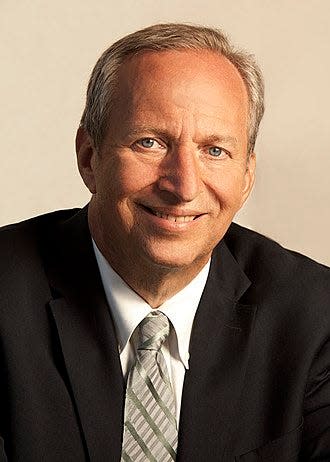Inflation hawks have keen eyes

For the better part of a year, former Treasury secretary Larry Summers has been warning that pumping trillions of dollars into the economy in the name of pandemic relief and economic stimulus was likely to have a dangerous side effect: reawakening the sleeping dragon of inflation.
In a February column for The Washington Post, for example, Summers expressed concern about the $1.9 trillion American Rescue Plan, which was then making its way through Congress and would soon be signed by President Biden. The measure authorized hundreds of billions of dollars in aid to state and local governments and showered American households with direct payments of $1,400 per person. That much stimulus, wrote Summers, was apt to "set off inflationary pressures of a kind we have not seen in a generation."
A month later, Summers warned again that Democrats were "taking substantial risks" by injecting such massive amounts of money into the economy.
"I know the bathtub has been too empty," he said, "but . . . think about what the capacity of the bathtub is and how much water we're trying to flow into it."
Summers, a former Harvard president and director of the National Economic Council under President Barack Obama, is a liberal Democrat, but liberals and Democrats sneered at his forebodings. Biden's top economic adviser, Jared Bernstein, told reporters that Summers's inflation alarms were "flat-out wrong." The New Republic pronounced Summers "finally, belatedly, irrelevant." Paul Krugman, the progressive economist, Nobel laureate, and New York Times columnist, said that to worry about inflation amid the pandemic was to miss the forest for the trees. "Think of it as disaster relief or like fighting a war," Krugman told Summers in a debate. "When Pearl Harbor gets attacked, you don't say, 'How big is the output gap?' "
But while Krugman, White House officials, and others on the left were insisting there was no reason to be worrying about inflation, inflation was growing steadily worse. Last week, the Labor Department confirmed that consumer prices had risen 6.2 percent in October compared with a year ago, the fifth consecutive month in which the increase had been above 5 percent. The United States is experiencing its biggest inflationary spike in 31 years, and it's going to get worse for American households before it gets better: The inflation rate for wholesale goods -- a good indication of where consumer prices are headed -- rose even faster in October than the retail rate.
Everything costs more than it did a year ago. The price of gasoline, motor fuel, eggs, used vehicles, beef, fresh fish, furniture, and televisions are all up by double-digit percentages. Thanksgiving is around the corner, and turkeys cost 22 percent more than they did in 2020.
After adjusting for inflation, real wages today are 2.2 percent lower than they were last year. That's the flip side of inflation: The sum on your paycheck may be unchanged, but you can afford less and less. Even if you shop at Dollar Tree.
This is what happens when the government unleashes an avalanche of spending, flooding the economy with trillions of dollars it can't afford, and insisting against all evidence that it won't lead to inflation, or that the higher prices will be temporary, or -- as Biden claimed recently -- that more government spending will somehow reduce inflation. Or even, as some in the media are now contending, that rising inflation is something to celebrate. There was a time when you had to tune in to a comedy show to hear an argument like that.
Millions of Americans still recall the inflation of the 1970s, when the country was whipsawed by double-digit inflation and steep interest rates. It was a "terrible period," Treasury Secretary Janet Yellen said in May. "No one wants to see that happen again."
Today's inflation isn't that bad -- yet. But the government's spending blowout hasn't ended, either. On Monday, Biden signed the $1.2 trillion infrastructure bill. He and congressional Democrats are still pushing to spend nearly $2 trillion more on the so-called Build Back Better plan. "I think we're speeding down the road at a really rapid rate," Summers told an interviewer last week. "It's not going to be so easy to put the brakes on here. And that's why I'm concerned."
Summers has been right about this all along. His fellow Democrats really ought to start taking his warnings to heart -- before that '70s show comes roaring back to life.
This article originally appeared on Palm Beach Post: Commentary: Stimulus spending sparks realistic fears of inflation

 Yahoo Autos
Yahoo Autos 